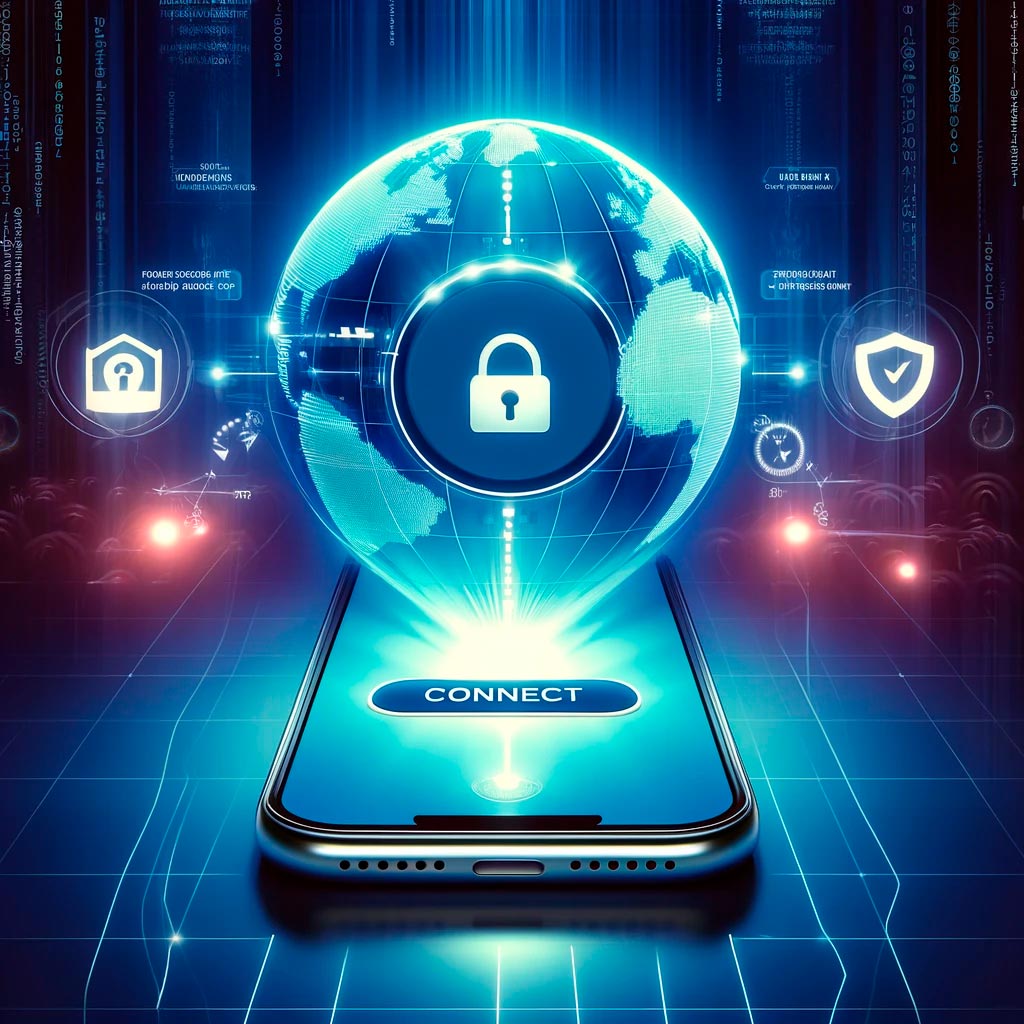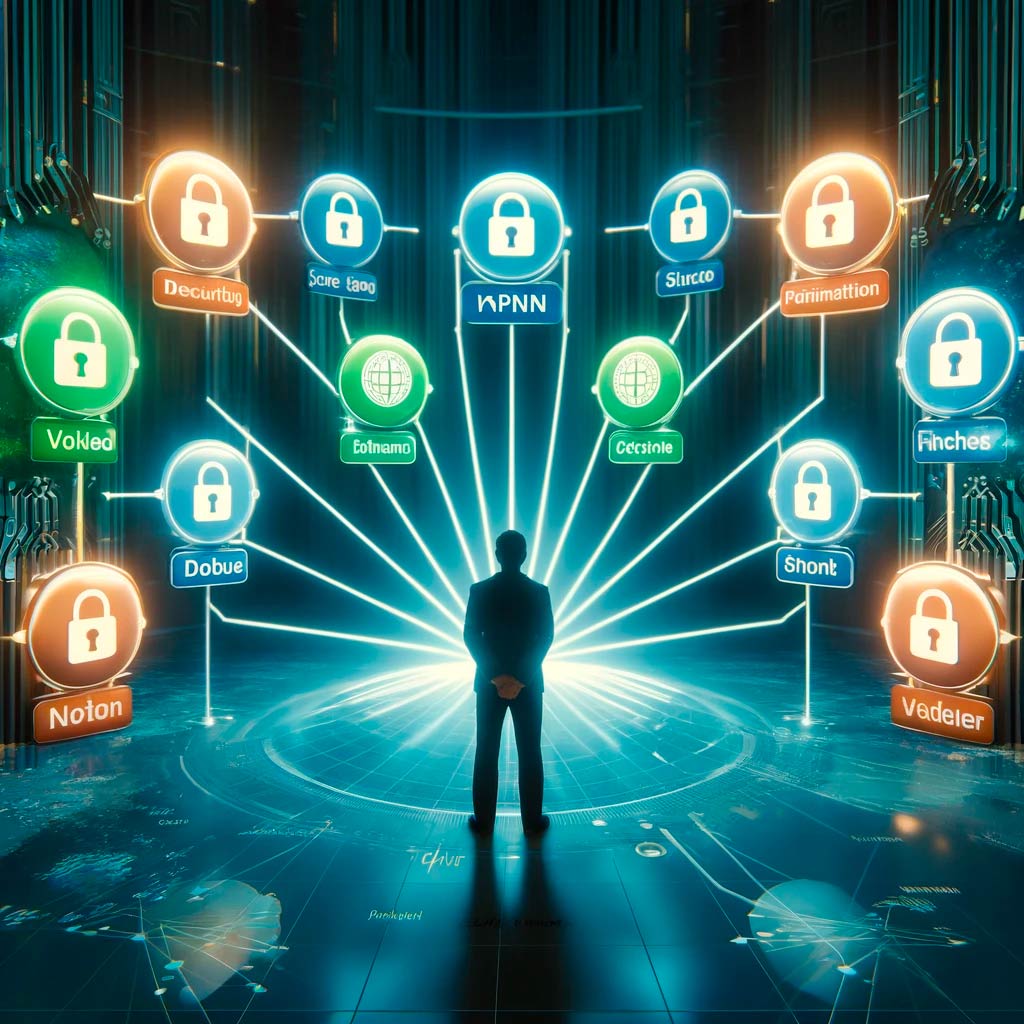Содержание
“Data protection in the modern world is not an option, but a necessity.” — Tim Cook
In today’s world, internet security and data privacy are increasingly pressing issues. One effective way to safeguard your online presence is by using a VPN (Virtual Private Network). Here are ten key reasons why considering a VPN is worthwhile:
Protection on Public Wi-Fi Networks A Reliable Shield Against Hackers
Public Wi-Fi networks have become an integral part of modern life. Cafes, libraries, airports, and many other locations offer free internet access. However, convenience often comes at the expense of security. Connecting to these networks without protection can leave your personal data vulnerable to hacker attacks. Hackers use various methods to intercept data transmitted over unprotected networks, such as “man-in-the-middle” attacks, where the attacker can not only see but also alter the transmitted information.
Using a VPN serves as a powerful shield against such threats. When connected to a VPN, an encrypted tunnel is created between your device and the VPN server through which all your data passes. This means that even if hackers manage to intercept this data, they will see only a meaningless string of characters due to strong encryption. Thus, a VPN provides reliable protection for your data even on public Wi-Fi networks, significantly reducing the risk of hacking attacks.
Bypassing Geo-Restrictions Unrestricted Access to Content
In the age of globalization, internet content is becoming increasingly diverse, but unfortunately, it’s not always accessible without restrictions. Geographic blocks and censorship can prevent access to desired websites, streaming services, music, and even educational resources. This is due to licensing agreements, political restrictions, or attempts to control the dissemination of information.
A VPN allows you to bypass these restrictions by providing the option to choose a server in a country where such restrictions do not apply. By connecting to a VPN server in another country, users receive an IP address from that country, allowing them to bypass geo-blocks and access restricted content. This not only broadens the range of accessible content but also supports freedom of speech and access to information.
Protection of Personal Data Encryption of Confidential Information
Data encryption is a fundamental principle of online information protection. In the context of using a VPN, encryption means that all data sent from your device to the VPN server is converted into encrypted code that cannot be read without the appropriate key. This applies to all transmitted data, whether it’s passwords, banking information, personal messages, or simply information about the websites you visit.

Modern encryption technologies, such as AES (Advanced Encryption Standard) with a 256-bit encryption key, provide the highest level of security. This encryption standard is even used by government agencies to protect confidential information. When using a VPN, all your internet activity is safeguarded by this powerful encryption, making it nearly impossible for outsiders to intercept and read your data.
Anonymity on the Internet Hiding Your IP Address
An IP address is a unique identifier for every device connected to the internet. It can be used to determine your location and track your online activity. Hiding your IP address is important for several reasons: it enhances your anonymity online, protects your personal information from unauthorized access, and prevents potential intrusive advertising.
When using a VPN, your real IP address is hidden, and instead, the IP address of the VPN server is displayed on the network. This means that all your internet requests appear to originate from the VPN server, not your device. Consequently, neither websites nor third parties can directly link your online activity to your real location or identity. This feature is especially valuable for those seeking maximum privacy online.
Secure Remote Access Accessing Corporate Networks
For many companies, data security is a critical aspect, especially when it comes to remote work. A VPN allows employees to securely connect to the corporate network from anywhere in the world, creating a protected encrypted channel for data transmission. This is especially important when employees work from home or connect to corporate resources from public Wi-Fi networks, which may be vulnerable to attacks.
Using a VPN ensures that all transmitted data (emails, corporate documents, access to internal systems) is encrypted and protected from potential threats. This creates a secure working environment, allowing companies to maintain high levels of productivity and security despite the geographical dispersion of the team.
Protection from Tracking Counteracting Online Tracking
One of the key functions of a VPN is protecting users from online tracking. Many websites and advertising networks collect data on users to create detailed profiles of their interests and behavior online. This may include search history, websites visited, time spent on specific pages, and even your location. The collected information is then used for targeted advertising and other purposes that may not always align with the user’s interests.
A VPN masks your IP address and encrypts your traffic, making it difficult for websites and third parties to collect and analyze your online activity. Additionally, many VPN services have a “no-logs” policy, meaning they do not keep records of your online activity. This provides an extra level of privacy and protection, allowing users to maintain anonymity online and reduce the risks associated with tracking and data collection.
Improving Connection Speed Fighting Speed Throttling
Internet speed throttling is a practice where internet service providers intentionally slow down the connection speed for certain services or at specific times. This may be related to attempts to manage traffic during peak hours or desires to limit the use of large amounts of data when streaming high-definition video or downloading files. Using a VPN can help bypass these restrictions, as it encrypts your traffic, making it unreadable to the provider. Thus, the provider cannot determine the type of your internet activity and, consequently, cannot apply specific speed limitations to it. This allows for enjoying unlimited internet speed even when using resource-intensive services.
Accessing Blocked Websites Bypassing Censorship
In some countries, governments impose strict censorship on the internet, blocking access to certain websites and services. This may include social networks, news portals, messaging services, and even educational resources. Censorship not only restricts freedom of speech but also hinders access to important information. A VPN allows you to bypass these blocks by changing your IP address to one from another country where such restrictions do not apply. This provides users with the ability to freely access and exchange information, circumventing government restrictions and restoring access to blocked content.
Protection When Downloading Files Security for P2P Connections
P2P (Peer-to-Peer) connections are used for sharing files directly between users without involving a central server. While this is an efficient way to share large amounts of data, it can also expose users to security risks, as the IP addresses of participants are visible to each other. This can lead to attacks by hackers, as well as privacy and anonymity issues. Using a VPN with P2P connections helps to hide your real IP address, protecting you from potential threats and ensuring safety when sharing files. Additionally, a VPN encrypts all traffic, preventing interception and analysis by third parties, providing a high level of confidentiality and data protection.
Ease of Use One-Click Protection
“A VPN not only hides your IP address but also encrypts all internet traffic, ensuring privacy and data security during transmission.” — Source: TechCrunch
One-click protection” means that users only need to press a single button in the VPN app or on the VPN provider’s website to initiate a secure connection. This process automatically selects the optimal server and configures all necessary encryption parameters, ensuring a high level of security and anonymity. Users do not need to delve into the complexities of choosing encryption protocols or servers in specific countries—the entire process is simplified and automated.
One-click protection through a VPN provides a comprehensive solution for internet security. It not only hides your IP address and encrypts data but also protects against numerous online threats, including hacker attacks, phishing, tracking, and unauthorized access to your data. This makes a VPN an essential tool in the arsenal of modern internet users who seek to maintain their privacy and security online.
Using a VPN is one of the most effective ways to ensure your security and privacy online. It offers a wide range of benefits, from data protection to bypassing geographical restrictions, making your online experience not only safer but also freer.




Комментарии к статье